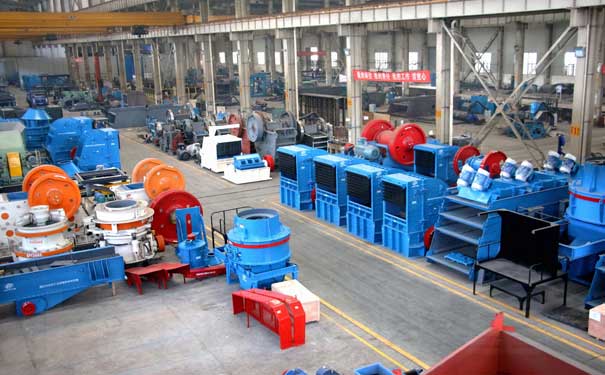Aggregate crushing is determined by the follow factors:
1. Materials type.
2. Materials hardness, water content and silicon content.
3. Average granularity before crushing.
4. Finished products granularity, proportion of each granularity, and finished products application.
5. Output per hour.
Granite, cobble, basalt and diabase are the aggregates with high hardness and high silicon content, which are difficult to crush with high crushing costs. Generally speaking, basalt and diabase are hard and tough materials, granite is hard and fragile material, and cobble has low hardness but with high silicon. Therefore, the crushing process for these materials should be designed properly, at the same time, considering the project costs and the production costs.
In the actual crushing process, some raw materials are limestone, jaw plate abrasion of jaw crusher is very low, so it is normal that the service life of a pair of jaw plate is one year. This is because the limestone not only has low hardness (level 4-5), but has low silicon content. All these have low abrasion for the crusher wearing parts. If the raw materials are basalt and granite, the abrasion of jaw plate, plate hammer and impact plate are high, the production cost is greatly larger than the limestone production cost. Therefore, the crushing equipment that we used has laminating principle in order to decrease the abrasion of wearing parts. The classic limitation equipment production line is configurated with two-step of jaw crusher or jaw crusher plus cone crusher. If the customer has higher requirement for the finished products granularity, it's better to configurate one set of impact crusher, forming three-stage crushing process.

